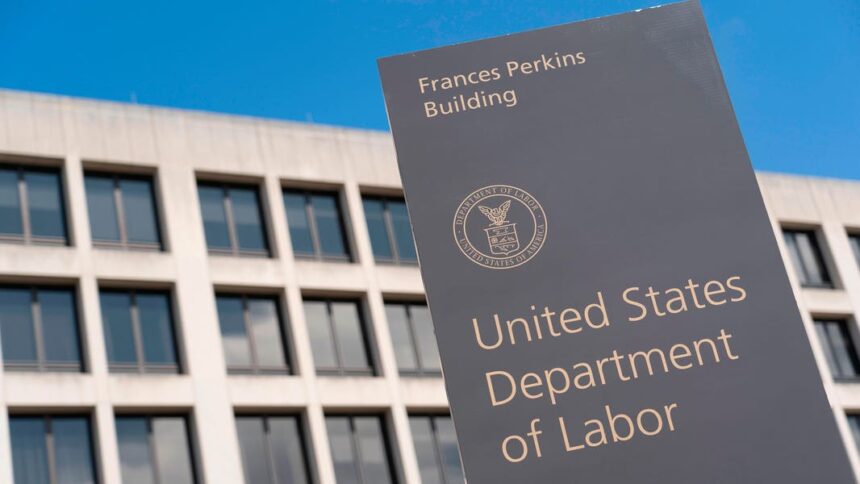The United States government has rolled out a new policy called ‘Project Firewall’, a high-stakes enforcement blitz targeting H-1B employers.
Announced by the U.S. Department of Labour (DOL), this initiative will ensure that H-1B employers face stricter audits under the New Project Firewall.
The Department of Labour declared that the policy is expected to ramp up scrutiny on compliance with wage rules, recruitment efforts, and fair hiring practices.
Pan-Atlantic Kompass reports that the launch came after U.S. President Donald Trump imposed a $100,000 fee for H-1B applications.
Trump declared that the fee is part of his administration’s “America First” agenda that prioritizes U.S. talent in high-skilled roles.
It appears that the new “Project Firewall” is another part of the initial policy Trump announced.
In a press statement posted on the official website of the Department of Labour, it was gathered that the Project Firewall is a new plan to keep a closer eye on how companies use the H-1B visa program.
This means that the U.S. government will now begin random checks and investigations to make sure employers are paying H-1B workers fairly and following all the rules.
Also, under Project Firewall, the government agency plans to launch investigations without a formal complaint and share findings with other government agencies like USCIS and the Department of Justice.
Explaining the new policy targeted at H-1B employers, U.S. Secretary of Labor Lori Chavez-DeRemer said: “The Trump Administration is standing by our commitment to end practices that leave Americans in the dust. As we reestablish economic dominance, we must protect our most valuable resource: the American worker. Launching Project Firewall will help us ensure no employers are abusing H-1B visas at the expense of our workforce.
“By rooting out fraud and abuse, the Department of Labor and our federal partners will ensure that highly skilled jobs go to Americans first.”
The statement also disclosed that if any company is found violating H-1B rules, the consequences can be serious.
The statement added: “Penalties may include:
•Repayment of back wages to workers
• Heavy fines
• In the worst cases, being banned from the H-1B program altogether”
The statement continued: “Companies that rely on H-1B workers are being urged to review their compliance now.
“Recommended steps include:
Audit Public Access Files (PAFs)
Go through every LCA file carefully, ensuring all documents are complete, signed, and accurate. Missing or sloppy paperwork is one of the easiest compliance mistakes to avoid.
Check Payroll Against LCAs
Regularly confirm that H-1B employees are being paid exactly what was promised in the LCA. Even small inconsistencies between pay and paperwork can create serious legal trouble.
Standardize Job Classifications
Make sure job titles, SOC codes, and wage levels line up correctly across filings. Inconsistent descriptions can look like intentional misrepresentation, even if it was an administrative error.
Post Notices Correctly
LCA postings must be visible at each worksite and kept on record. Skipping or misplacing these notices can count as a violation during a DOL audit.
Monitor Third-Party Vendors
If H-1B workers are placed at client sites, companies need to confirm that vendors follow the same rules. Poor oversight can lead to shared liability and penalties.
Train Internal Teams
HR, managers, and legal staff should understand H-1B rules, how to escalate compliance issues, and what to do during a government investigation or audit.
Prepare for Audits
Have a clear response plan with designated contacts, communication protocols, and organised records. Being ready before investigators arrive makes the process far less disruptive.”





